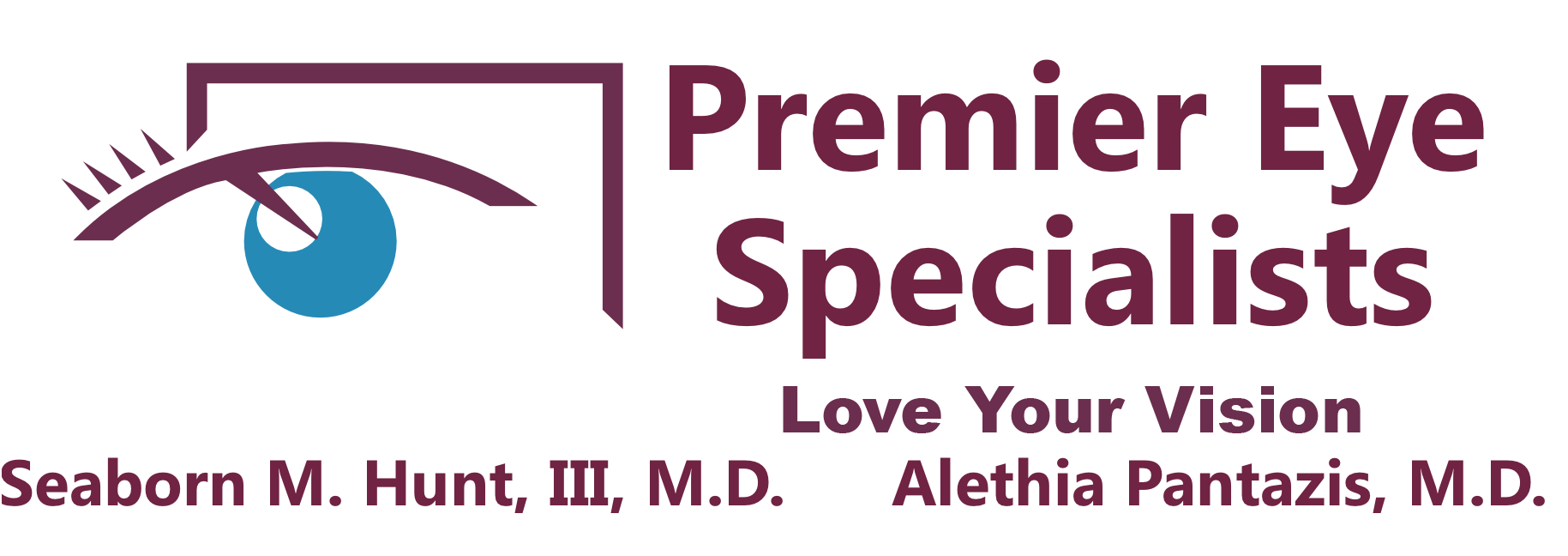Eye Care Exams in Ocala, FL & The Villages, FL
A closer look at eye disease.
In the U.S. alone, loss affects more than three million Americans age 40 and above. By 2020, experts believe that this number will rise to over five million people. This far-reaching problem can also be an expensive reality for those living with eye disease. In fact, the costs of adult vision problems in this country are estimated at over $51 billion each year.
As you grow older, it’s important to start thinking about the health of your eyes. Eye disease typically occurs later in life and your risk for developing problems increases with age. Vision loss can be a painful reality that affects your independence and your quality of life. Fortunately, there are things you can do to help keep your eyes healthy.
We specialize in eye exams!
How does the eye work?
Light first enters your eye through the cornea and is then filtered through the pupil. When light reaches the back of your eye, your retina transforms the image into electrical impulses that are sent to the optic nerve and then to the brain.
Your eyes are part of a perfectly designed, balanced system. When they are healthy, everything functions properly and efficiently. But when your eyes become unhealthy, the balance of that system can be affected. That’s why it is important to help protect your eyes against disease and damage so that they continue to work correctly for many years to come.
Am I at risk for eye disease?
A number of factors can increase your risk for eye problems. These may include:
- Age. Eye disease often occurs during middle age or later.
- Family history. If you are related to someone with eye problems, you may be more likely to inherit similar problems during your life.
- Obesity. Being overweight can contribute to the risk of developing eye disease.
- Smoking.
Smoking is the main, proven risk factor for age-related eye problems.
- Diet. Not eating enough fruits and vegetables can starve your eyes of the vital nutrients they need to stay healthy.
How do I know if my eyes are healthy?
You should always talk to your ophthalmologist or optometrist about the health of your eyes because early detection can make a difference. Addressing problems right away will give you the best chance to keep your eyes healthy. Your doctor may perform several tests during a full eye exam to determine whether or not your eyes are performing properly. A few of these tests might include:
- Visual acuity test. Using an eye chart, your doctor can measure how well you see at various distances.
- Dilated eye exam.
Drops are used to dilate (widen) your pupils. Using a special magnifying lens, your eye care professional can closely examine the back of your eye for damage.
- Amsler grid.
You may be asked to stare at a checkerboard grid with each eye. If the lines appear wavy or blurry, then you may have some kind of eye disease or vision loss.
What can I do to help protect my eyes?
There are a number of things you can do to help protect your vision. These include:
- Regular eye exams. Early detection of eye disease by your ophthalmologist or optometrist can play a significant role in preserving the health of eyes.
- Healthy lifestyle.
Watching your weight, maintaining a normal blood pressure, exercising regularly and not smoking are all things that can contribute to healthy eyes.
- Proper diet.
Eating the most colorful fruits and vegetables is a good way to make sure that your eyes are getting the nutrients they need to function properly.
- Nutritional supplements. Nutritional supplements are a great way to ensure that you get the right amount of important nutrients your eyes need to help prevent damage and vision loss.
What kind of nutrients do my eyes need?
Some of the important vitamins and minerals that your eyes need to function efficiently include:
- Lutein. Commonly found in dark leafy greens, such as spinach and kale, it may help protect against age-related eye disease and damage from light.
- Zeaxanthin. Commonly found in eggs and dark leafy greens, such as collard greens, this may help protect the eye against damage from light.
- Omega-3 fatty acids. Typically found in fish, such as salmon, these may help prevent age-related eye problems.
What other vitamins and minerals do my eyes need?
Additional ingredients that may help protect the eye are:
- B vitamins & folic acid. Often found in whole grains, lentils and leafy greens, they may help lower the chances of developing vision loss.
- Vitamins A, C and E. Commonly found in carrots, oranges and almonds, they help promote and maintain healthy vision.
- Zinc. Mainly found in oysters, chicken and beef, zinc is also important in keeping eyes healthy.
Am I getting the right amount of vitamins and minerals?
The National Eye Institute’s Age-Related Eye Disease Study (AREDS) found that very high levels of many of these vitamins and minerals significantly reduce the risk of vision loss.
However, it is usually difficult to get the recommended amount of these nutrients from diet alone. In fact, you would have to eat between 9 and 13 servings of fruits and vegetables per day.
But there is help available. Specialized ocular supplements have been developed to deliver these high doses of vitamins and minerals to your eyes, often in a single pill. It’s very important you select the right nutritional supplement to help fill these gaps.
Schedule an exam to identify potential eye disease by contact us today! We have offices in Ocala and The Villages, FL to best serve you.

